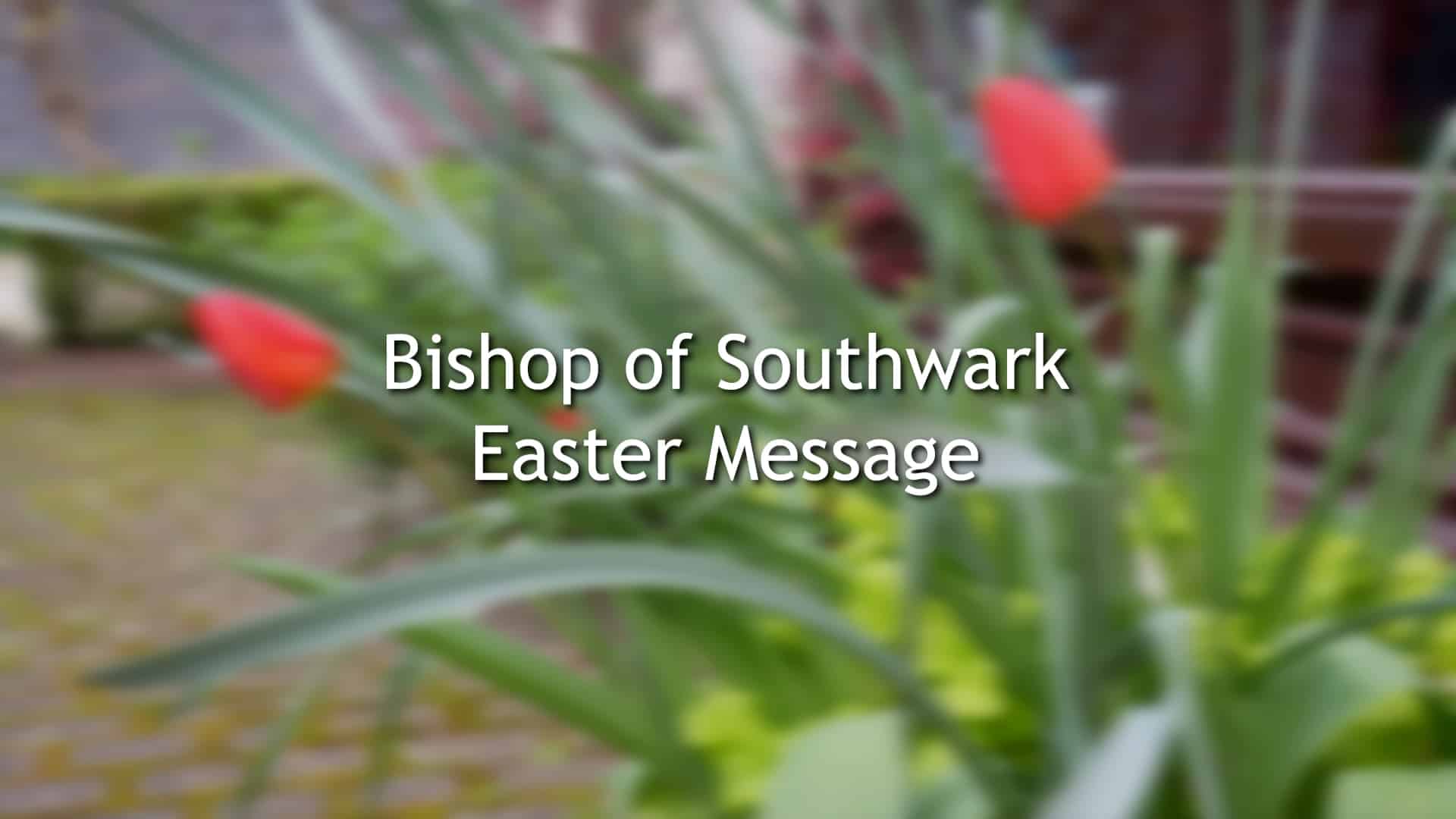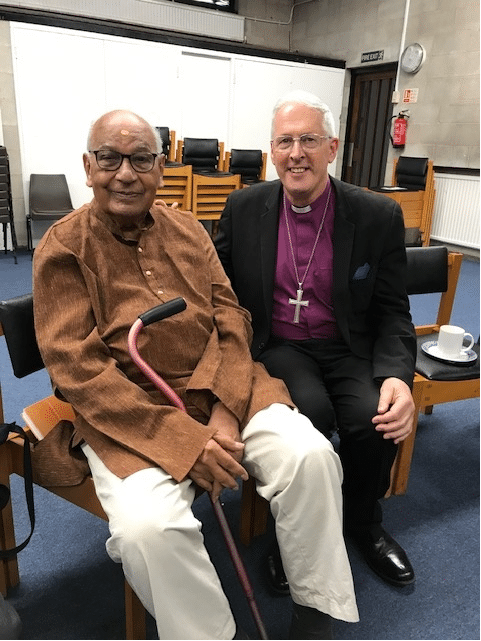Members of Synod, it is good to be together – after a manner of speaking and zooming – this evening.
In my introduction to the Annual Report before you, I begin by saying that when 2020 began it would have been almost impossible for any of us to envisage the year that we would go on to experience. Since then, in the context of the global pandemic and the hardship and suffering which has ensued, we have been learning how best to reach out to our communities and how to be the Church for the nation at this time ― sometimes working in mixed mode and sometimes, where this has been possible, going online when national restrictions have dictated.
I say it in the Annual Report before us, but I wish to say it in person: ‘thank you’ – to all those who have helped in our food banks, packing PPE equipment; and ‘thank you’ to our hospital chaplains and others on the front line who have cared for our most vulnerable during the last year. You will see that the frontispiece of the Annual Report is the huge foodbank set up in St Margaret the Queen, in Streatham, a parish that is also currently benefitting from financial support from the Diocese. I believe this Annual Report demonstrates the effectiveness of all our endeavours together, that we can – by walking and working together – overcome when we face adversity. I hope you have found it encouraging reading and you make it available to your PCCs and Deaneries. Copies have been circulated to every parish.
We are now emerging from the pandemic and the announcement of the imminent lifting of restrictions brings a new, practical hope to the lives of us all and to our parish communities. We still face ongoing uncertainties and yet we this year has shown that we have continued to Walk together, we have managed to extend our Welcome, often remotely, and we have Grown in our learning together as a Diocesan family.
The lockdown and the pandemic have been a time of loss for a number of us. This evening I would like us to remember two members of this Synod who have died recently: Brian Wilson, who was a long-standing member of General Synod and Sarah Swanson, who was also a member of the first three years of the Diocesan Council of Trustees. We remember them with gratitude to this Synod.
As soon as the Government announced the first lockdown I set up and chaired a Coronavirus Task Group, meeting frequently to ensure that we had a co-ordinated approach to transmitting advice and information to our parishes in a rapidly unfolding legislative environment. I am grateful to my CTG colleagues (the Diocesan Secretary, the Director of Communications, the Dean of Southwark and the Archdeacon of Lewisham & Greenwich) for their work and was glad to award Lancelot Andrewes Medals to them for their endeavours. I have also awarded the Lancelot Andrewes Medal to others across the Diocese for special acts of caring and service during the pandemic.
The Coronavirus Task Group continues its work but in the light of the anticipated ending of legal restrictions from 19th July, we will continue in our bulletins to give guidance on the easing of restrictions in our churches and church buildings. We can now focus more fully and joyfully on the questions of how we can recover well in our worship, how we once again enrich our worshipping life with song, how we cherish the online communities that have emerged, and how we can continue to support those who will remain anxious and worried as the long-term impact of Covid becomes apparent.
I want to acknowledge the contribution to the Diocese of some of my colleagues who moved on during 2020 and in the earlier part of this year. The Venerable Chris Skilton retired in February last year having ministered in Southwark since 1996, most recently as Archdeacon of Croydon. The Revd Canon Stephen Roberts retired in August of 2020 following a distinguished ministry in Southwark since 1989, serving first as a parish priest, DDO, Archdeacon and latterly for five years as Deputy Diocesan Secretary. Colin Powell, a Lay Canon of the Cathedral, retired in December from his post of Director of Education, having worked an extra term due to the pandemic.
Last month we said goodbye to Tony Demby, Finance Director, following his retirement and we welcome Mark Rhodes to this role and to the Diocese. We also bade a fond farewell to Archdeacon Jane Steen on her move to Norwich and consecration as the Bishop of Lynn. In her role as Archdeacon, Jane established strong bonds of trust with clergy and lay officers in each and every parish. Her archdeaconry clergy would be the first to attest to her as an advocate if needed, as well as a pastor with a loving heart. For the wider Diocese, Jane led the governance review ‘Fit for Purpose’, which brought the Bishop’s Council, DMPC and the DBF into a single body so that trustees might consider the issues of policy and resources together. The model of a Diocesan Council of Trustees is now increasingly being adopted by other dioceses – another excellent Southwark export (!) – and in our own context, the success of this revised model of governance has made for effective leadership, rigorous management at all levels, concise annual objectives and clear accountability.
The Diocesan values embodied in ‘Lead Enable Serve’ have been very evident over the last 18 months – particularly in collaboration and team work – as Archdeacons, Deaneries, Parishes and Diocesan staff have worked together tirelessly to ensure we continue to support our parish ministry and structures. I also want to thank our Area Deans, who have played such pivotal roles of support and facilitation during the pandemic, and will continue to do so as we anticipate change, recovery and growth.
Tonight, we will hear about the progress we have made on the three major areas which Synod commissioned: Deaneries, Lay Leadership & Ministry, and more recently the Eco-Diocese. In each of these we have made impressive progress and I fully expect that our areas of priority over the next three years will include not only the environment, but also the embedding of our Anti-Racism Charter which Synod approved unanimously.
Our Southwark Anti-Racism Charter is the result of a long trajectory of necessary work with our UKME brothers and sisters but it was given particular resonance and force as the ‘Black Lives Matter’ campaign resonated so strongly across the Diocese after the murder of George Floyd – giving further focus to our energies so we might together ensure equality, dignity and due recognition for all.
Last year Synod approved a deficit budget which we believe will take three years to remedy. We also presented at that meeting our plans for the future, including strategic ministry deployment and the significance both of pioneer ministry and Hub and Resourcing churches. This strategy will make us resilient for the future as we deploy our curates, develop lay leadership and lay ministry of various kinds (about which you will hear more shortly) and through our continuing commitment to growth in diversity and representation in ordained and lay ministries. This three-year strategy is designed to navigate the challenges we face following the biggest economic shock this nation has faced in three hundred years.
Most of all I want to thank our parishes for their magnificent support through the Parish Support Fund in 2020 which is continuing into 2021 and will I hope extend into 2022. This has helped to ensure our financial resilience which of course is essential to our commitment to equip and resource mission and ministry across the Diocese. You may know that we were in the top five of dioceses in terms of other measures of resilience such as our giving from parishes during 2020. Overall we were within 4% of our pledge targets, which was remarkable and a source of great thanksgiving.
However, this message of thanks needs also to be accompanied by a clear indication of the challenges we face over the next few years. We intend to deliver Southwark Vision by 2025 but we recognise that in order to do so we shall all need to work together with a strong consensus to help the Diocese build for the future.
As a Diocese we have had so many blessings during this difficult journey. Last year, for example, we had the sustainability grant from the National Church and a loan to help us with stipends that has already been fully repaid. In the last 48 hours we are delighted to let you know that our largest grant giver, the Trust for London, has decided to make us a further one-off grant of £1.5m this year, which we will use across the two coming years to reduce our deficit in 2021 and, also, to assist in reducing it in 2022. This is truly a godsend and I hope encourages all of you as we seek to recover by building again the Parish Support fund for ministry and mission. I continue to place clergy wellbeing at the forefront of our priorities, and we anticipate that this unexpected grant will enable us to honour a planned stipend and staff pay rise for 2022, having put stipends and salaries on hold last year.
On a personal note, many of you know that I have been somewhat restricted following some unexpected surgery to my knee and the main tendon above the knee. I am recovering strongly and well and in good heart anticipating a return to good mobility over the summer. My convalescence has been helped immeasurably by the readiness with which my episcopal colleagues – the Area Bishops and the Honorary Assistant Bishops – have stepped in to take services and help in other ways. We are very blessed in this Diocese by everything they offer – and I thank them.
And so tonight, my brothers and sisters, may we pray with hope and joy that God’s love be poured into our hearts through the Holy Spirit and that we continue in all things to be Christ Centred and Outward Focussed.
Let us be of good courage and put our trust in the Lord.






